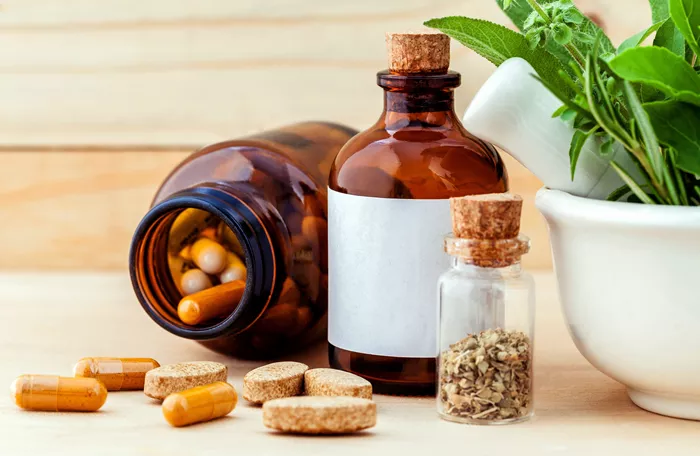Herbal supplements have surged in popularity, partly fueled by social media platforms like TikTok. However, a troubling new study suggests that several widely-used supplements could be harmful to your liver.
Researchers from the University of Michigan recently examined data on six herbal supplements known to be potentially toxic to the liver, including ashwagandha, green tea extract, turmeric, and others.
The research, published in JAMA Network Open, highlights a significant rise in liver injury cases linked to botanical products. According to data from the Drug Induced Liver Injury Network, incidents of liver damage from such products increased from 7% in 2004-2005 to 20% in 2013-2014.
“The supplement industry is mostly unregulated, which means the product you buy may not contain exactly what the label claims,” said Jessica Cording, MS, RD, author of The Little Book of Game-Changers.
For the study, the researchers analyzed data from over 9,500 American adults who participated in the National Health and Nutrition Examination Survey between 2017 and 2020. They focused on six supplements previously associated with liver damage:
- Ashwagandha
- Black cohosh
- Garcinia Cambogia
- Green tea extract
- Red yeast rice
- Turmeric/curcumin
Nearly 58% of participants reported using herbal or dietary supplements in the last 30 days. Around 5% of them admitted to using one of the six supplements under investigation. When these figures were extrapolated to the general U.S. population, researchers estimated that approximately 15.6 million adults could be using supplements that might harm their liver.
“Given the lack of regulatory oversight, healthcare providers should be cautious of adverse events related to these supplements,” the study’s authors noted.
While the results of the study were significant, it is important to note that the research did not prove the supplements caused liver damage. Instead, it showed that 5% of participants took supplements known to potentially cause harm based on previous research. The exact mechanism of how these products may damage the liver remains unclear, though it is likely linked to liver metabolism after consumption.
Although the study raises concerns, experts stress that herbal supplements can still have significant health effects. “Herbal supplements can be potent,” said Cording. “Just because something is an herb doesn’t mean it’s risk-free.”
Additionally, taking more than the recommended dosage or combining supplements with medications could increase the risk of harm. Long-term use of certain herbal products has also been linked to health issues.
Kelly Johnson-Arbor, MD, a toxicologist, warns that people should use herbal products with caution. “Just because these supplements don’t require a prescription doesn’t mean they are safe,” she said.
If you’re considering taking an herbal supplement, both Cording and Johnson-Arbor recommend consulting with a licensed healthcare provider, such as a doctor, dietitian, or pharmacist. A healthcare professional can help you navigate potential risks and guide you in making safer choices.
Cording added that this study alone is unlikely to result in major changes in the supplement industry but hopes it will encourage more regulation and safer use of these products.
Read more:
- 4 Herbal Medicines For Menopause: Benefits & Usage
- Exploring The 6 Best Herbal Supplements For Men
- Top 5 Best Multivitamins For Breastfeeding Moms


